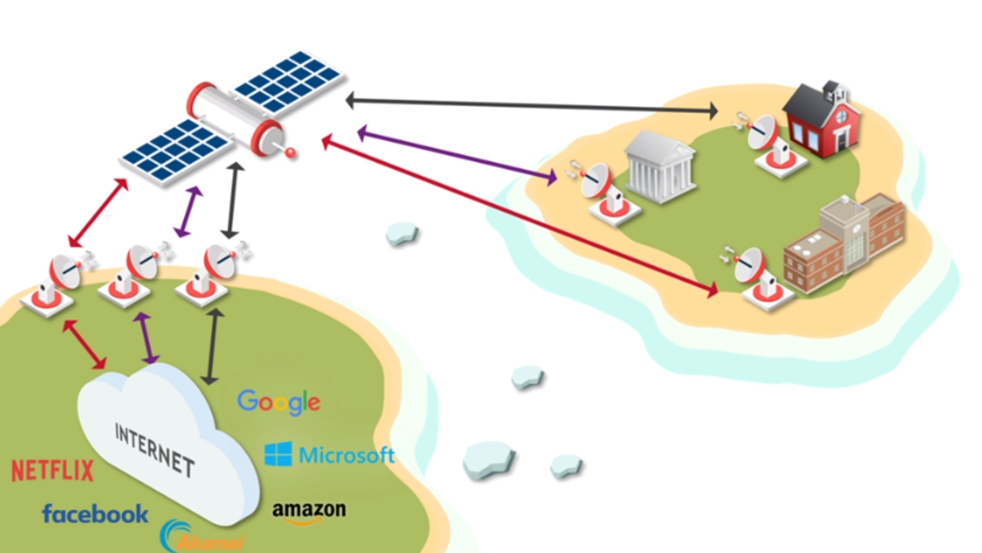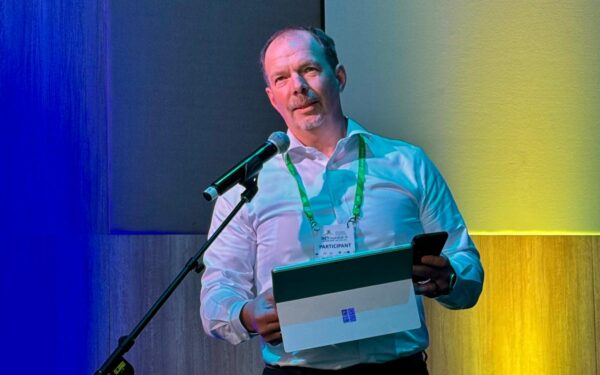The improvements to internet speed, quality and security in Iqaluit could be greater, and more concrete to the general population, than in any other community where we’ve worked on IXPs before.
Over the last few years, I have been involved in setting up Internet Exchange Points in cities from Vancouver to Charlottetown. In each case, I’ve worked with stakeholders – ISPs, content providers, local technical experts – who were looking to make their local internet more resilient and better performing. But none of those initiatives prepared me for my recent visit to Iqaluit to kick off discussions about an IXP in that community.
I think it’s fair to say that complaining about your internet provider is practically a national sport in Canada. But Nunavut residents have truly earned that right.
As I wrote about last week, the speed and performance of the internet in Iqaluit is incomprehensible for most Canadians. As a result, the improvements to internet speed, quality and security here could be greater, and more concrete to the general population, than in any other community where we’ve worked on IXPs before.
Given all this, it was no real surprise that our first information session and subsequent meetings with stakeholders in the community were a huge success.
So why is the internet so bad in Iqaluit?
In the spring, I blogged about how an IXP could work in a satellite-only community, and I received some good feedback from readers. Since then, we’ve refined the technical implementation, and after some discussions with stakeholders last week, we’re well on our way to what the solution can look like.
Here’s how we explained Iqaluit’s internet (or lack thereof) to the community last week:

Long story short, there is no internet in Iqaluit. There are no inter-connected networks, which means any time anyone needs to access the internet, even locally, the traffic must access the satellite, get the information, and send it back. This is expensive and inefficient.
I used a road analogy in describing this to local residents and stakeholders.

Imagine if to get from your house to your work or school, you had to take a bridge from Iqaluit to the mainland, change roads, then make your way back. Of course it makes no sense, and no one would design a road this way. Yet that is how the internet infrastructure was developed.
The solution, then, is to implement an IXP, which would enable the exchange of traffic locally – like bringing a roundabout TO the community and bringing some content IN the community.

Making the IXP a reality
Though the solution seems obvious, it certainly doesn’t make it easy.
- The IXP needs a home
One problem is that for an exchange point to exist, it needs to be housed in a vendor-neutral data centre. No such facility exists in Iqaluit. Nuvujaq Society is looking to fill that gap buy bringing in a data centre that will hold the Iqaluit IXP.
The data centre will also provide space for key content distribution networks (CDN) and content providers to share their content locally.
So what does this actually mean?
It means that important security patches or operating system updates from Apple, Android, and Microsoft could be accessed locally, without having 8,000 residents bogging down the system trying to update their iPhone iOS via satellite (most of them unsuccessfully, no less, and being charged for every retry bits). It means residents could stream content from their local media outlets at high speed. It means that in bad weather, a worker could work from home, VPNing into the office.
- Local network challenges need to be addressed
Since the local infrastructure wasn’t designed with inter-connectedness in mind, some speed bumps will need to be overcome. There are a few options – including laying fiber in the town, something that would be easily feasible given it’s small size and extensive utility pole infrastructure.
- Build the local IXP community
An IXP’s success is dependent on the strength of the community behind it. Singlehandedly the most positive thing that came out of our meetings in Iqaluit was key stakeholders’ strong desire to actually get involved in improving the local internet. From legislators to techs working with the territorial government, to ISPs, to independent consultants… everywhere we turned, we heard, “So what do we do to make this happen?”
The Iqaluit IXP has all the right ingredients for success. In the coming months, we’ll be working with the local community to continue to build interest, to educate, and to start working out some of the technical challenges ahead of us. In the meantime, Nuvujaq Society will be hard at work getting their data center up and running. I’m not a betting man, and I know better than to predict a launch date this early into a complex project. But I have a sneaking suspicion 2019 will be a very good year for the internet in Iqaluit.
As an expert in developing innovative, leading-edge IT solutions, Jacques has established CIRA as a global leader among ccTLD registries. He has 25+ years of experience in the private and not-for-profit sectors and as CIRA’s CTO,is currently leading CIRA Labs, CIRA’s innovation hub and providing leadership and direction for the management and security of the .CA registry and its underlying DNS.
A visionary in the Internet community, Jacques led the development of CIRA’s Internet Performance Test, is an outspoken advocate for the adoption of IPv6 and represents the .CA registry internationally as a member of a variety of working groups and advisory groups. He is committed to the development of a new Canadian Internet architecture. He has served as the catalyst for the creation of a national Canadian IXP association, CA-IX, and is a member of the Manitoba Internet Exchange’s (MBIX) and the DNS-OARC Board of Directors. Jacques is also a member of ICANN’s Security and Stability Advisory Committee (SSAC).
Jacques holds an Electronics Engineering Technologist diploma from Algonquin College, is ITIL v3 Foundation certified and is a certified Agile ScrumMaster.





